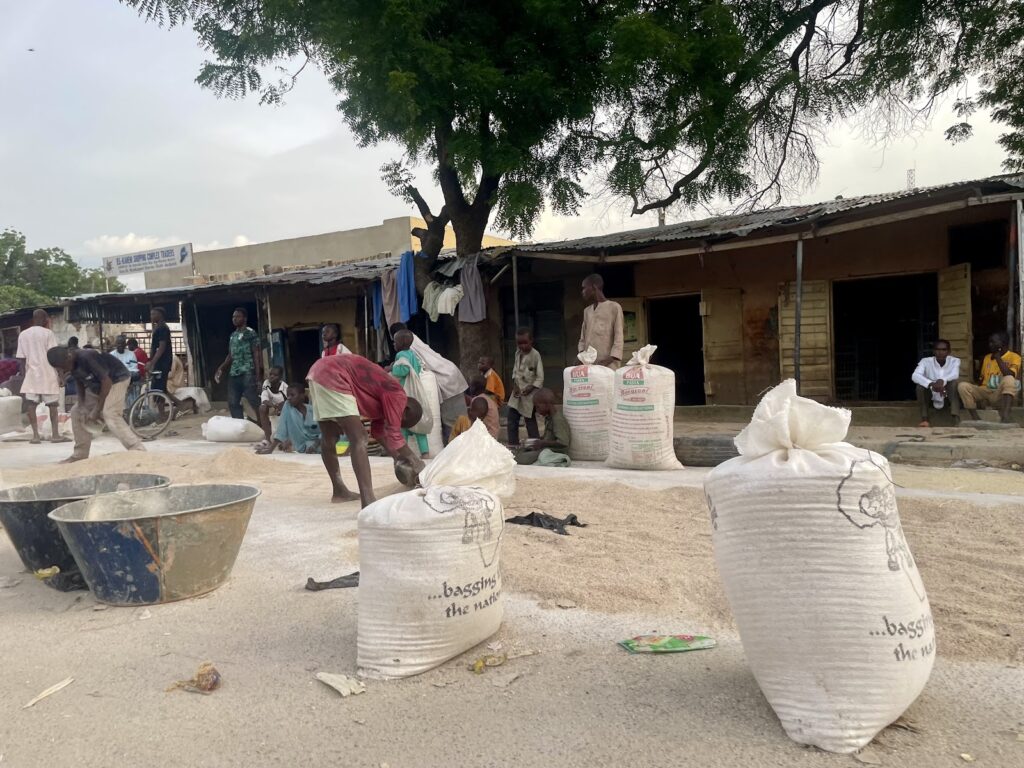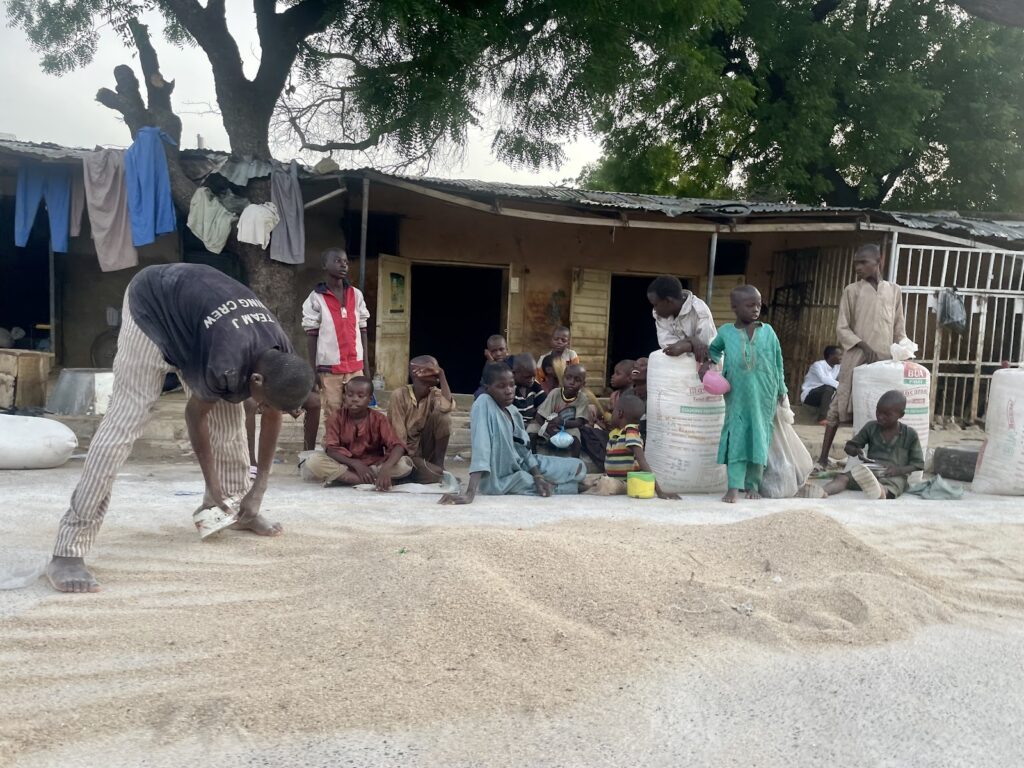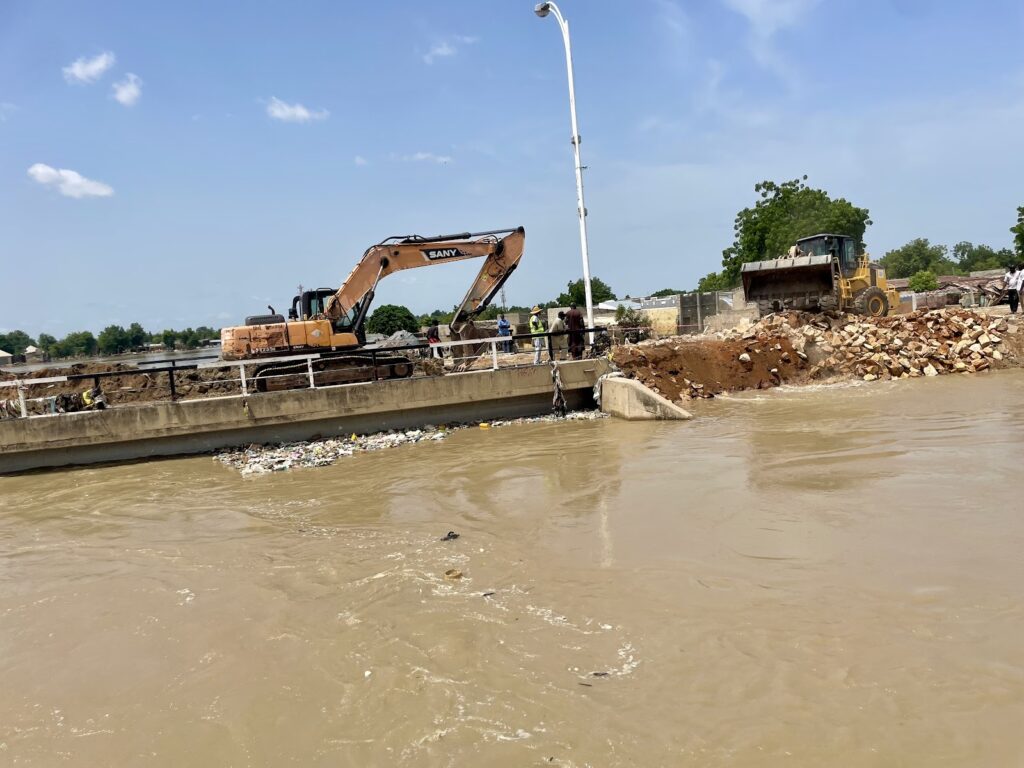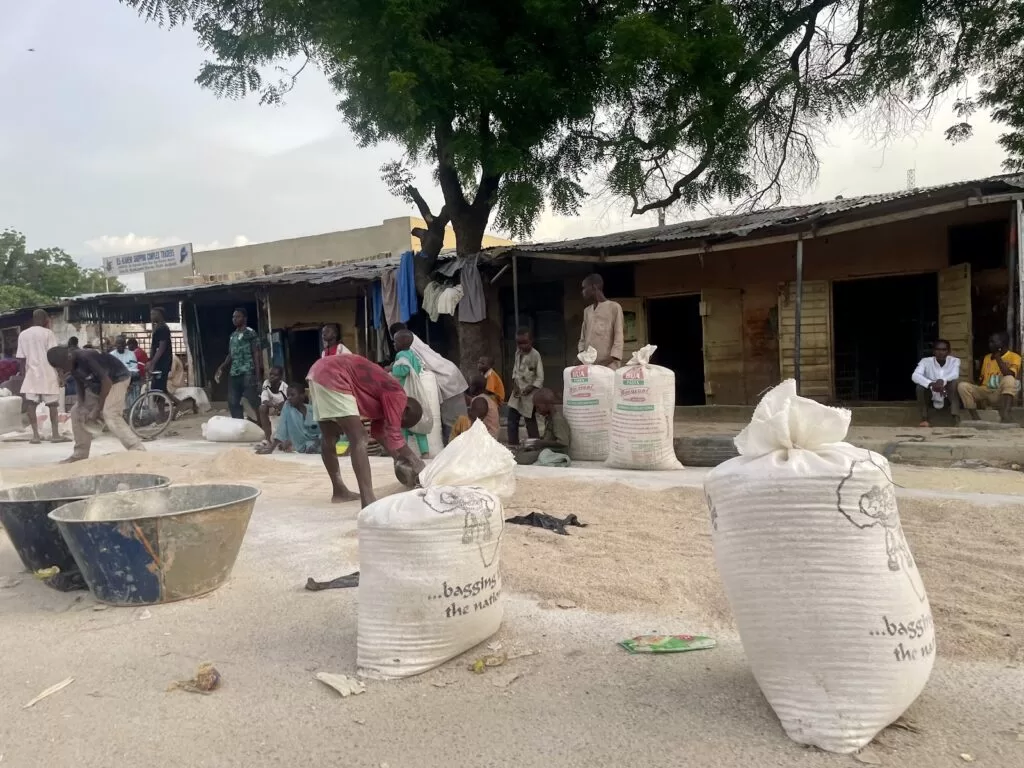In the wake of the tragic floods that have swept through Maiduguri in northeastern Nigeria since last week, swallowing humans and properties and food alike, desperate but disturbing trends are beginning to emerge. HumAngle spotted people drying out flood-affected food items. This trend has been observed by other residents who say they are worried about the quality of the food they will be buying from the markets in the coming days and weeks.
“I am really worried about the kind of maize and meat I will buy after the flood crisis because of the reports and posts I have seen about some people butchering animals already killed by the flood and also the warnings issued by the government regarding food items affected by floodwater,” Mohammed Salisu, a resident of Maiduguri said.
According to Mohammed, his inability to identify healthy grains and those extracted from the flood makes him apprehensive about buying contaminated food. “Some business people are not honest, they could sell you contaminated food, and this is what I am afraid of – to eat poison,” he said.
Witnesses who interacted with HumAngle shared that 0.75 kg of flood-affected local rice is already sold at the rate of N1500, which is half the price of the non-affected measure in the market.
“People are buying them already. I carried passengers who bought for N1500 per 0.75 kg. It is because of hunger; they are in desperate need of food at a lower price,” Lawan, a tricycle rider, told HumAngle.
HumAngle has seen multiple local traders on the streets, drying up grains and other food items that were soaked by floodwaters under the sun. In a disturbing sight, vulnerable children were observed collecting grain remnants, potentially putting themselves at health risk if consumed.
All grains and food items that have come into contact with floodwaters are deemed hygienically unsafe for consumption, Aisha Mohammed Maidala, a nutritionist and food expert in Borno, told HumAngle, emphasising the severity of the situation.

“All grains and food items that must have been soaked or submerged in the floodwaters are hygienically unsafe for consumption because they have already been contaminated with all the impurities therein: fluids, decomposed human and animal dead bodies, sewages, and chemicals from hospitals and laboratories.”
She added that “the grains or any food items having stayed in that water for over 24 hours, makes them lose their nutritional value. Consuming contaminated food can lead to waterborne diseases, food poisoning, gastrointestinal infections, and other life-threatening health issues.”

Dr Michael Terungwa David, executive director of the Global Initiative for Food Security and Ecosystem Preservation (GlFSEP) and Africa regional coordinator of Citizens Climate International, in an exclusive interview with HumAngle, corroborated the issues raised by Ms Mohammed.
“Firstly, floodwaters can carry harmful bacteria such as E. coli, Salmonella, and Campylobacter from sewage, animal waste, and decaying matter. Consuming food contaminated with these bacteria can lead to foodborne illnesses, causing symptoms like diarrhoea, vomiting, abdominal pain, and in severe cases, dehydration or hospitalisation. Also, Parasites, such as Giardia and Cryptosporidium, can thrive in floodwaters. Consuming contaminated food can lead to parasitic infections, causing prolonged gastrointestinal illness, dehydration, and fatigue.
“Additionally, moist conditions from floodwaters can promote the growth of mould and fungi on food. Consuming mouldy food can cause allergic reactions, respiratory issues, or, in some cases, exposure to mycotoxins, which can be toxic and lead to more severe health complications.”
Dr Michael further added that “Floodwaters may carry heavy metals like lead, mercury, or arsenic from contaminated soil or industrial runoff. The long-term exposure to heavy metals can lead to chronic health conditions, including kidney damage, neurological issues, and developmental problems in children.”
Government reacts
The Borno State Government has issued a stern warning regarding food safety.
“Any food that was mixed with flood water constitutes a serious health risk,” the government emphasised in a press statement issued by the Borno State Ministry of Information and Internal Security. The ministry has urged citizens to exercise extreme caution, advising them to “desist from buying, selling, processing or consuming contaminated grains or other food items that were salvaged from flooded stores.”
Similarly, the government stated that the public should “desist from butchering, distributing, processing, selling, bullying or consuming dead animals. Dead animals are poisonous.”
The warning came with consequences for those guilty or found wanted.
“Anyone who violates this warning shall face the wrath of the law.”
Secondary healthcare facilities like the University of Maiduguri Teaching Hospital, the biggest in West Africa, were also submerged, exposing chemicals and sewages carrying contaminated hospital items. This is a great health risk according to the chief medical director, Professor Ahmed Ahidjo.

As the water continues to recede in many areas, residents are clearing and cleaning their houses, humanitarian workers are still rendering assistance to victims, and government authorities are providing support and reconstructing damaged infrastructure like collapsed bridges.
Support Our Journalism
There are millions of ordinary people affected by conflict in Africa whose stories are missing in the mainstream media. HumAngle is determined to tell those challenging and under-reported stories, hoping that the people impacted by these conflicts will find the safety and security they deserve.
To ensure that we continue to provide public service coverage, we have a small favour to ask you. We want you to be part of our journalistic endeavour by contributing a token to us.
Your donation will further promote a robust, free, and independent media.
